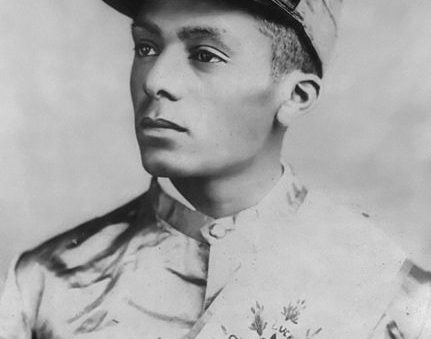
“… ‘the rules are the rules.’ Yet, rules aren’t inherently neutral — more likely than not, rules are an extension of a status quo of racism, and are often written by people who have never faced the sort of marginalization that their rules create. While marijuana is widely legal, and widely used by people of all races and backgrounds today, that wasn’t always the case. And while plenty of legal weed businesses are helmed by white people, prisons across the country are still filled with Black and brown drug offenders, sentenced for marijuana use. There will always be racist implications to who is and isn’t punished for drug use across lines of race and class. Richardson’s case is just another devastating example of this”. — Kylie Cheung
Millions of Black and Brown lives have been upended by decades of racist application of marijuana policies. Track and field sensation and Olympic hopeful Sha’Carrie Richardson is the latest casualty.
The news of Richardson’s suspension from Team USA because of a positive marijuana test came just days after the announcement that competitors would be permitted to bring alcoholic beverages into the Olympic village, highlighting the absurdity of marijuana prohibition.
As many addiction specialists have noted, cannabis does not meet the World Anti-Doping Agency’s criteria for prohibition: it is neither “performance enhancing” nor a health risk to the athlete, and the suggestion that it violates the “spirit of sport” is nonsensical.
Richardson, for her part, has handled the controversy with Sha’grace and humility. Before the news of her test even broke, she tweeted, simply, “I am human.” She later elaborated that she was coping with the devastating news of her biological mother’s death – imparted to her by a reporter, a relative stranger. While this explanation of her emotional state is sympathetic, it should be wholly unnecessary.
It is long past time to end marijuana prohibition – in sports, and in the law.
Marijuana prohibition, and the application of such laws, have been inextricable from systemic and overt racism for more than a century. Before the outbreak of the Mexican revolution sparked an influx of immigration beginning 1910, marijuana was a common ingredient in over-the-counter medicines and was sold openly in pharmacies. As the Great Depression stoked resentment of Mexican immigrants, among whom recreational use was common, efforts to link marijuana use with violent and criminal behavior intensified.

Ironically, it was the end of alcohol prohibition that led to the first federal law against marijuana. As head of the Federal Bureau of Narcotics, Harry Anslinger was responsible for enforcing the Volstead Act, prohibiting the manufacture and sale of alcoholic beverages. When the 21st Amendment repealed alcohol prohibition, Anslinger pivoted to marijuana – intentionally exploiting racial fears and false stereotypes to launch the first American Drug War.
Even as more states move to legalize recreational use of marijuana – 18 and counting – extreme racial disparities in marijuana possession arrests persist in every jurisdiction in the nation.
According to a report issued by the ACLU last year, Black Americans are 3.64 times more likely to be arrested for marijuana possession than white Americans, even though Black and white people use marijuana at similar rates. In some states, Black people were up to six, eight, or almost 10 times more likely to be arrested. As the authors of the report note:
Criminal consequences [are] not the only harm of marijuana prohibition. There is a range of potentially debilitating collateral consequences as well, many of which persist even after marijuana is decriminalized or even legalized. These can further erode people’s civil rights by impacting housing rights, parental rights, the administration of public benefits, access to education, and immigration status. For example, families who live in federally subsidized public housing face eviction or family separation if someone is accused of using marijuana on their premises. Parents may lose their children in family court proceedings if accused of using marijuana. Disabled and poor recipients of public benefits still face the threat of losing their benefits for marijuana use. Immigrants can face deportation for marijuana use. Because of the race-driven way in which marijuana criminal laws have been enforced, each of these potentially life-altering consequences of criminalization has been borne disproportionately by communities of color.
Attitudes about marijuana use are changing quickly, and the outrage over Sha’Carrie Richardson’s suspension may even be the catalyst for a rule change by the World Anti-Doping Agency. More importantly, state and federal prohibition and the racist enforcement of these laws must end – and any legislation legalizing marijuana must not only redress for past wrongs and create economic opportunities for communities that bore, and continue to bear, the negative effects of the War on Drugs.







